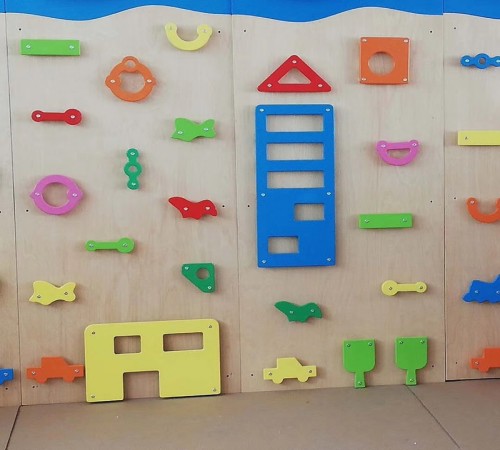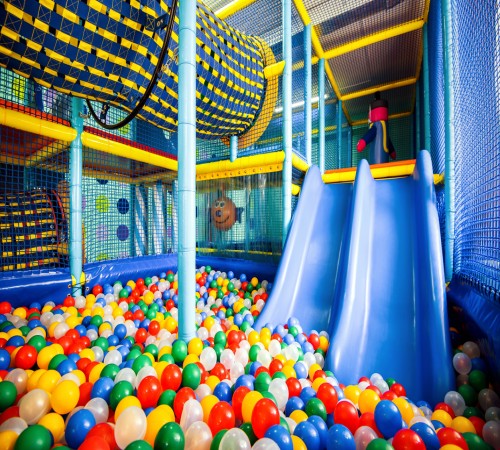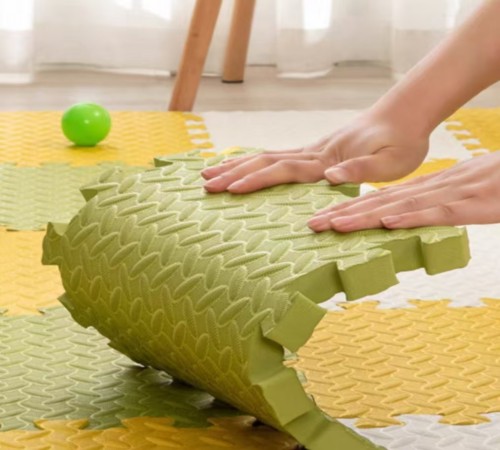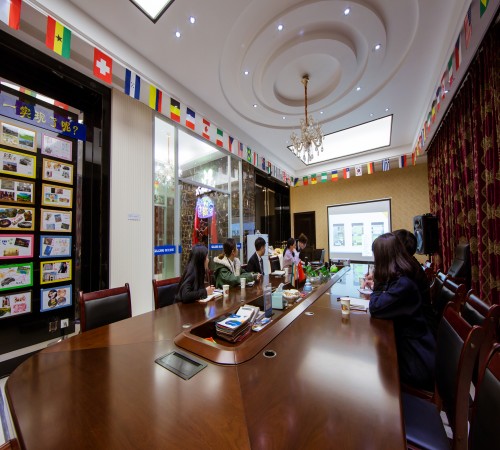
1. Go Vertical: Use Layered Structures and Climbing Nets
Instead of spreading wide, think upward. Vertical climbing nets and multi-layer soft structures not only maximize spatial efficiency but also enhance kids’ motor skills and exploration desire.
A well-planned indoor soft playground can include rope bridges, slide tunnels, and hanging obstacles stacked across two or three levels—turning 80 square meters into a dynamic play universe.

2. Combine Functions: Slide + Ball Pool = Double Value
Smart design means one device serves multiple purposes. For example, integrating a small slide into a soft ball pool creates layered excitement for children of different ages.
These hybrid zones increase engagement and extend stay time. In fact, many china commercial indoor playground suppliers now offer combo units customized for limited layouts.

3. Fold and Store: Create Flexible Play Zones
For small venues, mobility is key. Foldable trampolines or retractable soft play mats allow operators to switch between open play, parent-child classes, and birthday events within the same area.
One recent project in Jordan converted a 120㎡ shop into a trampoline park with detachable zones and a movable toddler play corner—maximizing ROI per square meter.

4. Plan Flow: Visibility and Circulation Matter
When designing a kids indoor playground, the entrance view should capture at least 70% of the play area. Clear lines of sight boost parent trust and enhance perceived openness.
Pathways between attractions should allow free flow and avoid bottlenecks. This improves safety, user satisfaction, and facilitates supervision—especially crucial for first-time venue owners.

5. Choose the Right Supplier: Customization Makes the Difference
Not all suppliers understand small-space dynamics. Look for china commercial indoor playground partners who offer layout consulting, modular designs, and localized installation services.
Ask for 3D mockups and case studies from similarly-sized venues. The right partner helps you avoid underused corners, safety hazards, and design bottlenecks.